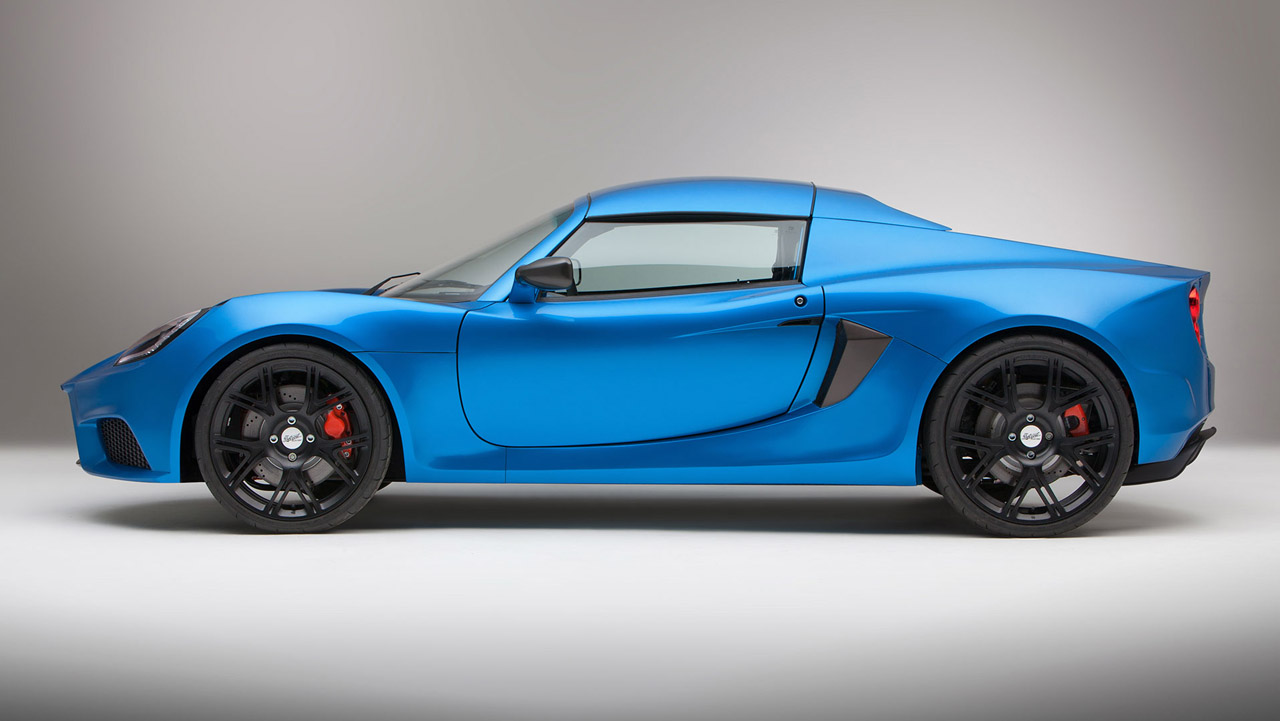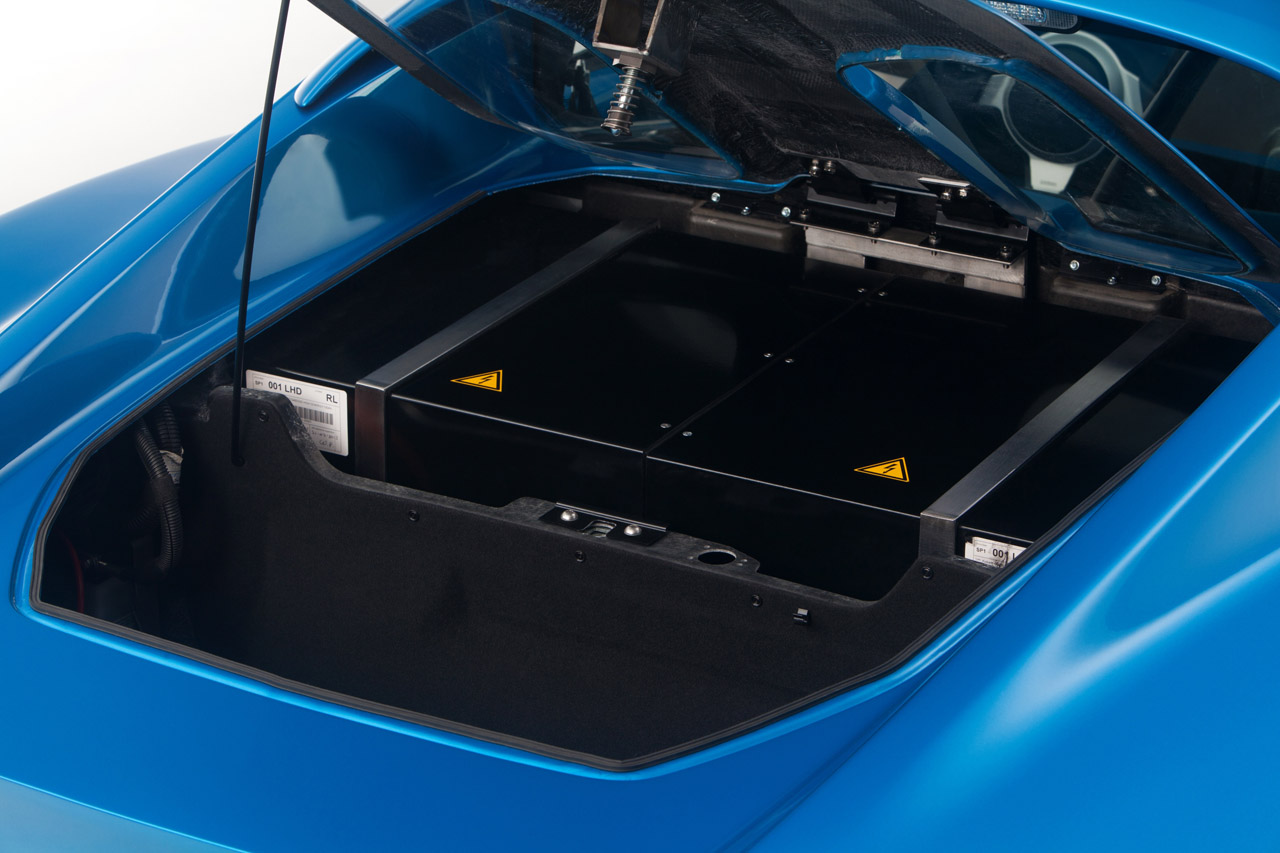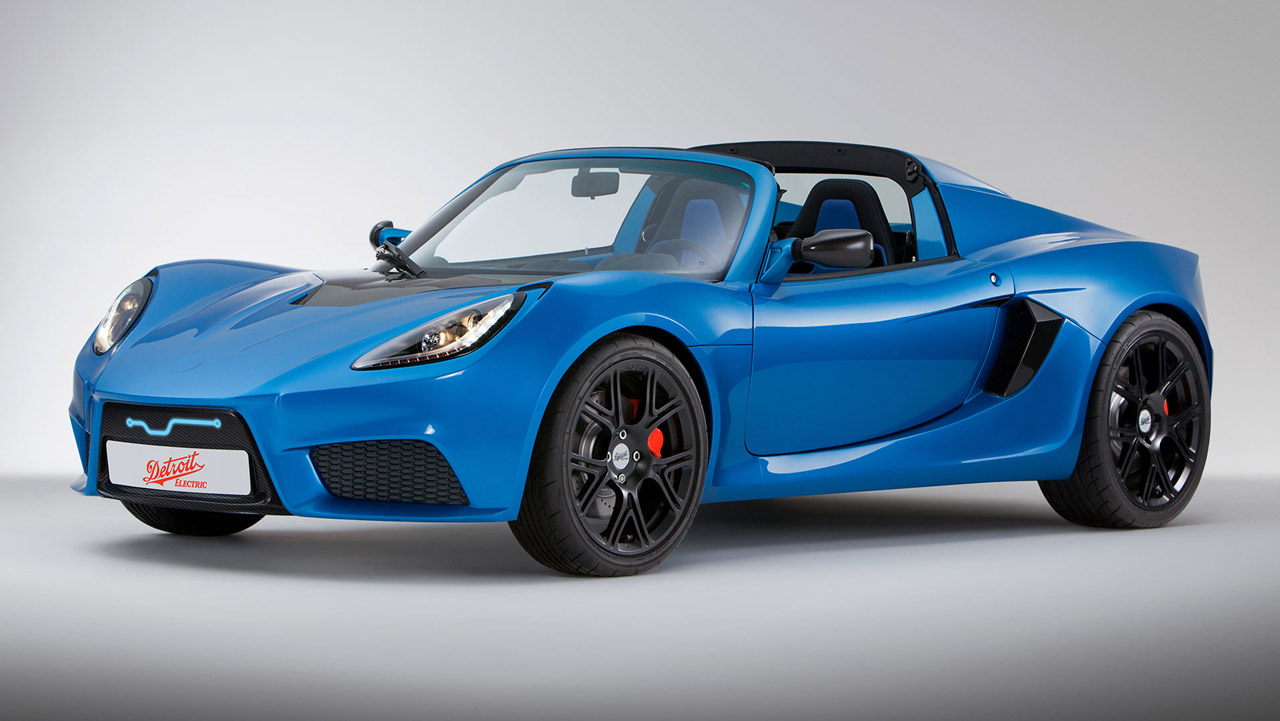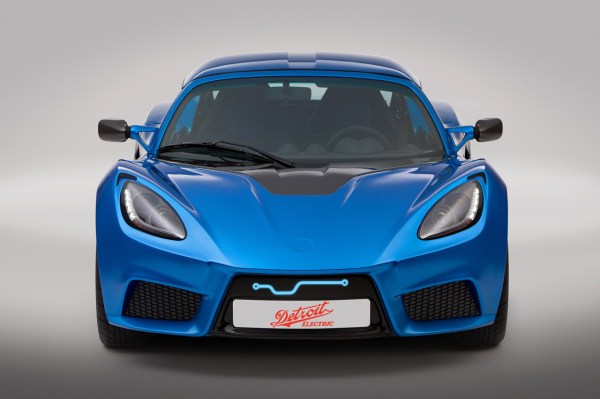Nearly 100 years ago, the Anderson Carriage Company produced and sold one of the most popular electric vehicles of the time: The Detroit Electric. With production peaking at 1,000-2,000 cars in 1910, the company eventually renamed itself after its popular model and sold nearly 13,000 electric vehicles during its 32 years of production. The company never recovered from depression, producing its last EV in 1939.
Detroit Electric is back. Meet the first car to wear the historic nameplate in over 70 years: The SP:01.
The brand was revived in 2008 by Albert Lam, former Group CEO of the Lotus Engineering Group and Executive Director of Lotus Cars of England. Now headquartered in Detroit’s historic Fisher building, the company is set to restart Detroit Electric starting with the SP:01 electric sports car.
The SP:01 is just the first from the Detroit startup. More family friendly vehicles are in the works, with two new models in the pipeline for 2014. The company is also setting up its production shop somewhere in the Detroit area where it expects to have a yearly production capacity of 2,500 vehicles. This facility will create 180 new jobs.

Detroit Electric only plans on making 999 examples of the SP:01. That’s well under the 2,400 Tesla Roadsters produced during its four-year run. With a starting price of $135,000, the SP:01 also has a starting cost higher than the Roadster. But at least it’s just as fast.
Detroit Electric claims the SP:01 is the fastest pure-electric production car on the market. And that’s true since the Roadster is no longer available. It’s claimed, although yet verified, performance numbers puts the SP:01 on the same level as the limited edition Tesla Roadster Sport. Plus, with a claimed top speed of 155 mph and 0-62 mph time of 3.7 seconds, it’s quicker than just about every other car out of Detroit including the new Corvette Stingray.
Propulsion is provided by an air-cooled, asynchronous AC motor powered by dual 37-kWh lithium-polymer batteries. The system is good for 201 horsepower and 166 pound-feet of torque — not bad for a car that weighs just 2,403 pounds. Strangely enough, unlike the dead-simple Tesla Roadster, the SP:01 features a four-speed manual transmission or an optional two-speed automatic. Since the electric engine is either on or off, there is no need to use the clutch when stopping or starting.
Detroit Electric claims the SP:01 has a driving range of 180 miles based on the New European Driving Cycle, but as Autoblog notes, while the official calculations haven’t been released, that likely results in about 150 miles on a U.S. cycle.

It’s no secret that the carbon-fiber shell comes from a Lotus Exige. Interestingly enough, the Tesla Roadster is based largely on the Lotus Elise platform.
Per Detroit Electric’s press release, it takes 4.3 hours to fully charge the SP:01 from a 240 volt outlet with 32 amps. It takes 8 hours on a 13-amp sources. But like the Chevy Volt, the SP:01 can output its electrical charge, serving as a sort of $135k electric generator in a pinch.
Here’s hoping that Detroit Electric finds the same level of success as its forebearer. The EV market is wide open for new players. Tesla, while Detroit Electric’s main competition, has a large head start but by no means a monopoly. Fisker is dead in the water, GM and Toyota are pursuing hybrids, and Nissan is seemingly content selling low-end electric vehicles.
The SP:01 will hit the production lines this August. The price starts at $135,000.

